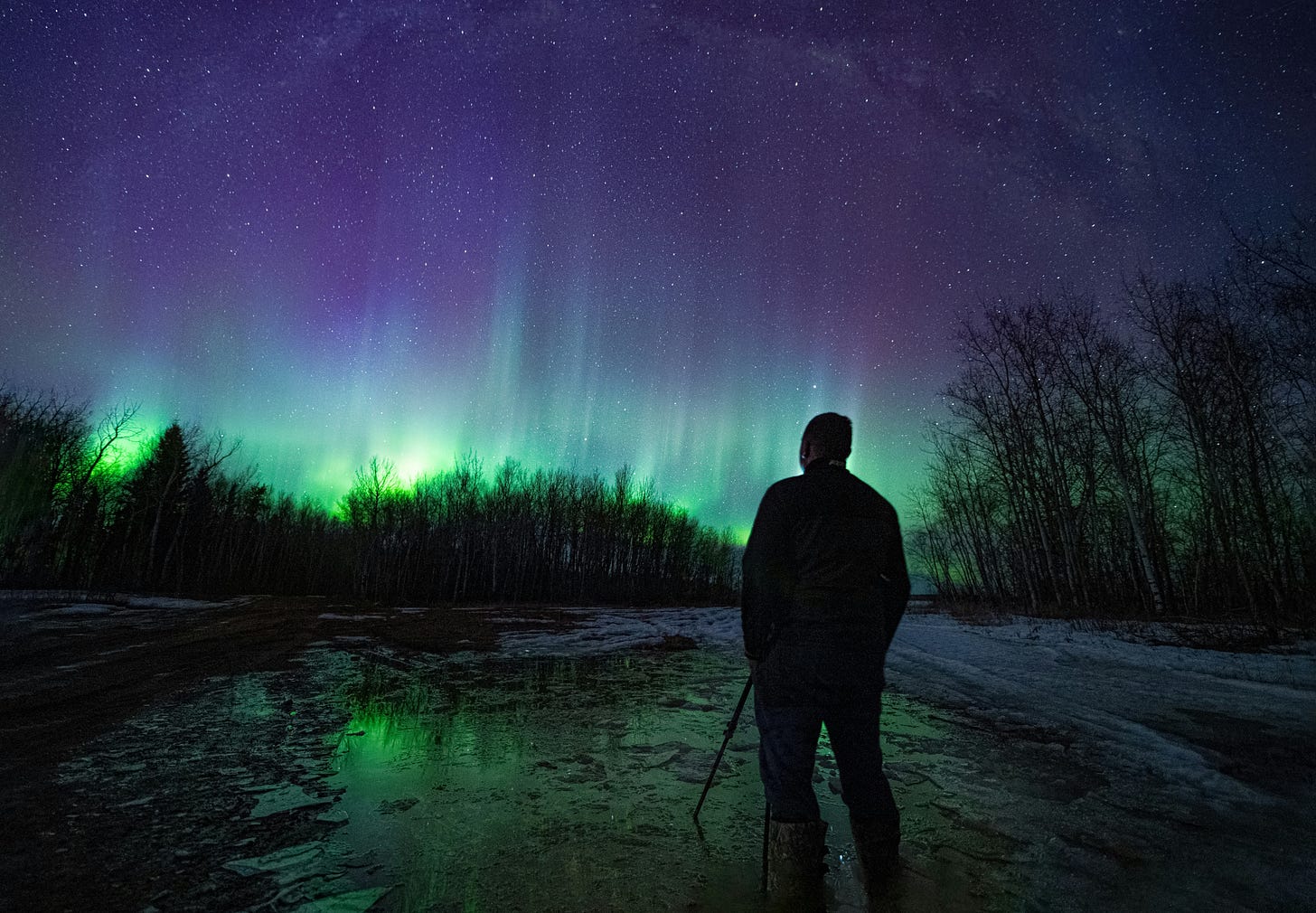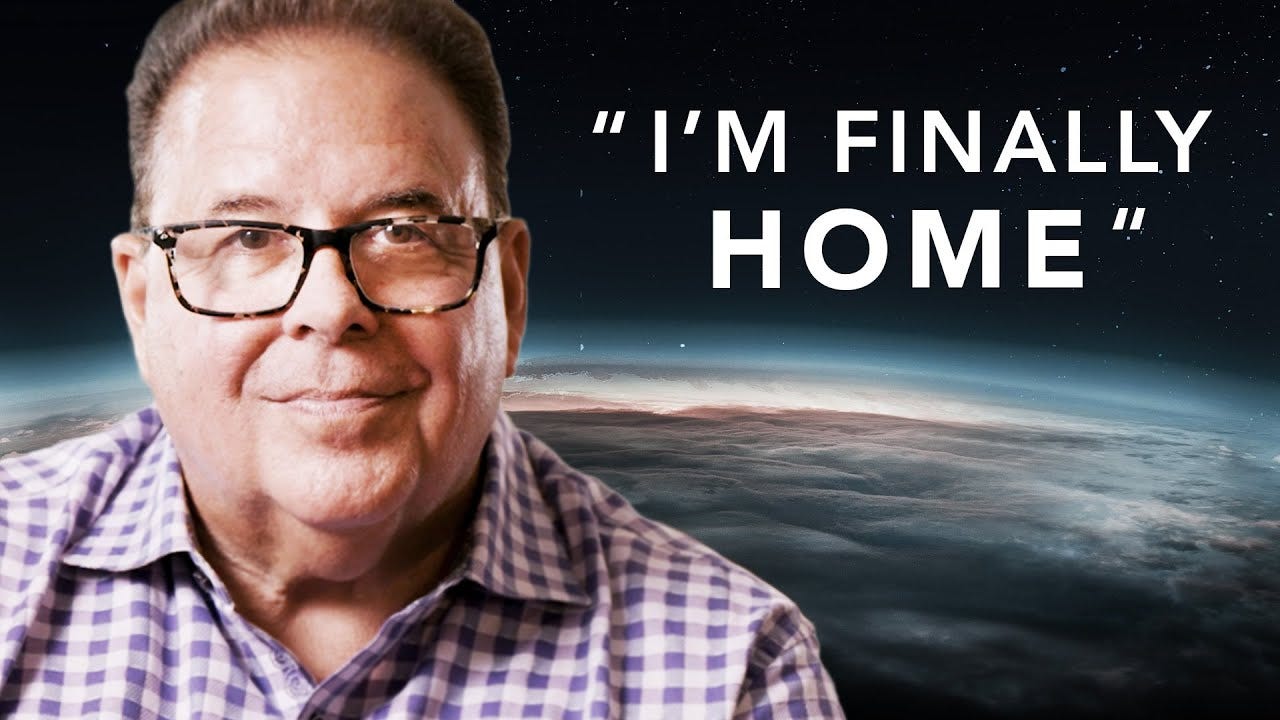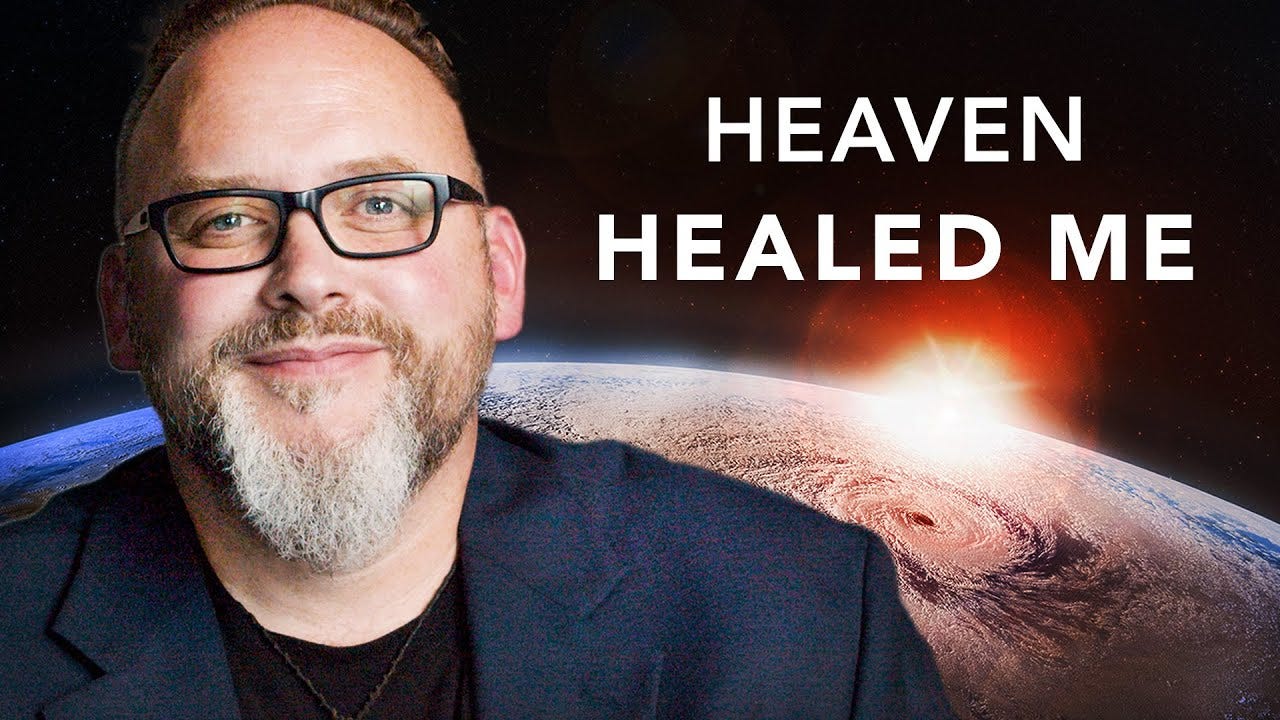How Other People’s NDEs Changed My Life (For the Better)
Coming Home co-founder Eliot Estrin explores how he was transformed by the power of the life review

In this essay, Coming Home co-founder Eliot Estrin explores:
His long-standing resistance to investigating near-death experiences (NDEs), despite his brother’s persistent encouragement
How a spiritual pilgrimage to Assisi, Italy became the unexpected setting for his first deep dive into NDEs
How the core messages from NDEs echo fundamental truths found across religious and spiritual traditions throughout history
How the reality of NDEs inspires a deeper sense of moral purpose—recognizing that our actions create ripples that affect countless others’ lives
I remember I was flying to Assisi, Italy, where Saint Francis lived, for a spiritual pilgrimage with my brother. This trip was the culmination of many years of planning when my brother and I could spend five days together.
We chose Assisi because, after we read St. Francis’s biographies in college, we both developed a deep affection and admiration for this saint. Even though he lived nine hundred years ago, his authentic and radical love for the divine inspired my own spiritual journey for many years.
At the time, we were both busy with moving in with partners, getting married, and helping take care of our mother, who was sick with cancer.
We were waiting at the gate to board a connecting flight from Germany to Assisi when my brother said, “I know you don’t want to hear about near-death experiences, but you have to watch at least one. Please, this time do it for me.”
For ten years my brother would, off and on, encourage me to watch or read an NDE story that he recommended. But time after time, I had always declined. It felt too “far out” and strange to me.
I was a die-hard Buddhist, and I preferred the modern take on mindfulness.
I had always been drawn to pragmatic spiritual practices that helped me to understand and reduce my suffering. I liked the simplicity of following my breath and bringing my awareness to the present moment.
In general, I was averse to any idea of a “God” or a “Soul.”
“I know you don’t want to hear about near-death experiences, but you have to watch at least one. Please, this time do it for me.”
I also had no interest in hearing about people dying, let alone what they experienced on the other side. However, since I was already jet-lagged and tired from our transatlantic flight, my resolve was weakened, and I saw the determination in his eyes.
So, I finally agreed to indulge him.
He put on a two-hour YouTube interview of a Jewish rabbi who excitedly recounted his death in the back of a taxi cab and his subsequent out-of-body experience and journey in the afterlife.
In the last part of the video, this man explained how he went from being an angry, violent, drug-using man into a strict rabbi who was striving to live a better life in a spiritual, emotional, and moral way.
I was struck by the honest details of his life—how he described himself as a lost man who often beat people up and robbed people without thinking twice.
He described going into a hell realm and then having his life reviewed by a council of elders. He experienced their love and was then told to become a rabbi in order to rectify his harmful actions.
It was clear, in listening to him tell his story, that his NDE had completely transformed his life. While it was captivating, it only interested me as just that—a unique and compelling story. Nothing more.
It clearly didn’t have the deeper impact my brother intended.
An Unexpected Transformation in Assisi
However, it was when my brother insisted that I watch a few additional interviews that my life was forever changed. As we sheltered from an unusual winter storm in the Assisi mountains, for the next three days in our little motel room, my brother showed me three more videos of people recounting their NDEs.
And then, just like a lightbulb turning on in a dark room, something clicked for me. What I experienced was an incredibly exciting and new epiphany about what the world and the purpose of life might really be.
Unlike reading spiritual or religious books, I found a fresh aliveness in watching modern people’s honest recounting of their experiences. My primary skepticism—that people were lying or making the stories up—was debunked because all these people, who were different in terms of age, gender, ethnic background, and life story, had the same themes in their experiences.
My second skeptical thought was that these people didn’t really “die.” It was more likely to me that their brains generated chemicals, creating images that may have seemed real but were in fact just a dying brain’s last spasm.
And then, just like a lightbulb turning on in a dark room, something clicked for me.
However, I quickly came to dismiss this skepticism, as several of the interviewees said that their experiences were verified by various third parties.
One example of this was when a person died and her spirit went upward out of the hospital, and her spirit hovered above the hospital for a period of time.
She then saw a shoe that was on a windowsill near the top of the building, which had many scuff marks and was hidden from view. After she returned to her body and tried to describe her experience to the doctors and nurses, they didn’t believe her.
So she told them about this shoe, with its scuff marks, as a way to help prove that she was out of her body. A number of nurses at this hospital in Seattle ended up searching each windowsill near the top of the building, and they eventually found the shoe, exactly as she described it.
Considering these details, my belief that they made up these stories, or that they didn’t really die, began to feel more like a defensive reaction on my part.
Have you heard our latest podcast episodes yet? Or have a friend who might want to listen? Check them out at the links below, and consider gifting a paid subscription to share the Coming Home community with your friends and family.
(Episode 1) What is Coming Home?
(Episode 2) Carl Jung’s Near-Death Experience
(Episode 3) Peter Panagore: Life After His Near-Death Experience
(Episode 4) Tricia Barker: Transformation From A Near-Death Experience
(Episode 5) Plato and the Earliest Recorded Near-Death Experience
(Episode 6) David Bennett: Life After His Near-Death Experience
The Life Review: A Transformative Encounter
Many people have asked me, since my brother and I started our Coming Home YouTube channel and Substack account, why are we so passionate about NDEs?
And what about NDEs has had such a big impact on me?
The answer lies in my main takeaway message that I get from people’s NDEs, which comes from what people call their “life review.” They often describe not watching their earthly life but reexperiencing it via every action, word, thought, and deed. In this way, they experience both their own thoughts, feelings, and actions but also what impact they had on everyone they ever interacted with.
A great example of this is told by Bill Tortorella in one of our films.
He describes in his life review how he was shown that his actions and words as a paramedic had vast and powerful ripples on many people’s lives. Bill reflects that when he was a paramedic, he wasn’t sure about how much he was helping people.
He felt that he was just going through the motions. However, in the life review, he was shown the depth of his impact, and it caused him to say, “Thank God I was a paramedic, thank God I did good in my life.”
People are shown that each interaction—whether it was kind and loving or harsh and judgmental—had a powerful impact on the other person.
They were often shown how others then internalized the energy of that interaction and forwarded it to others in their life, whether it was in how they later treated their dog, a friend, or a family member.
How should I live my life if I know I will have a life review when I die?
In this way, they describe our interactions and our consciousness as like energy that ripples out continually, never stopping fully.
This concept—that there is a divine intelligence (or as I call it, God) that observes and tracks all of our actions, words, and deeds—was very powerful to me and prompted immediate changes in my life.
I began to tell fewer white lies (that took a little bit of time!). I began to strive to be a better and more patient husband and a more loving and playful father. I began to give more to homeless people I saw on the streets and, most importantly, to look them in the eye and ask how they’re doing. I began trying to lower my anger or irritation when it would arise and, in general, trying to be more kind and generous to strangers.
NDEs have shown me that I had to finally confront a powerful question:
How should I live my life if I know I will have a life review when I die? If I have to rewatch and relive every moment in front of my loved ones, in front of Beings of Light, in front of God?
Ultimately, the messages people were given on the Other Side were that the goal of life on Earth is to strive to be the most kind, loving, and generous we can be. We do this by putting kind and loving thoughts, words, and actions out into the world—so that they inspire others to be kind and loving in turn.
This creates positive and powerful ripples of divine love that spread throughout creation. It was primarily this concept that forever changed my life because it gave me a purpose to my life and something to strive for.
Lessons Learned
This concept is also exactly what most religious and spiritual philosophies talk about (or list as their main principles or purpose of life) across all cultures and time, a topic we’ve covered in more depth in our essays by Gregory Shushan and Jesse Estrin.
The Jewish tradition talks about “mitzvahs,” which are good deeds that are essential in Jewish life. Christians use the phrase “good works,” Muslims have the word “hasanat,” and Buddhists have the Dharma.
Even the ancient Greeks had principles called the “virtues” that guided the philosophers in Greek life. This made it feel very authentic and real to me.
It is worth noting, however, that many of these accounts of NDEs say that they never felt judged during the life review. Rather, they were the ones judging themselves, often feeling as if they had missed the whole point of being alive on Earth and had instead pursued selfish interests.
People reflected that they had inadvertently harmed others while trying to fulfill their desires. An example of this is in our film with Vincent Tolman, where he was shown his unskillful actions in his life review, but he felt no guilt since he didn’t feel judged by the beings that were with him.
I want to leave ripples from my life that offer people hope, that leave people excited and passionate to make the world a better place.
He knew he was judging himself but wanted to improve his life going forward.
I didn’t want to make that mistake, and I would much rather share a beautiful life review with whoever greets me on the Other Side than spend time reviewing the harm I had caused others during my life. Although I’m sure there will be plenty of both!
The irony is, however, that in some ways I’ve already learned a very deep lesson: there doesn’t seem to be anything better in the world than making someone smile or easing someone’s burden.
Overall, learning about NDEs has not only transformed my life for the better, but it has also given me a new sense of purpose, a need to share these experiences with other people so that I may also find the kind of transformative truth that I’ve encountered through them.
I want to leave ripples from my life that offer people hope, that leave people excited and passionate to make the world a better place. And this is why Jesse and I started Coming Home: to inspire others both about the world to come, as well as ways to leave this world a little brighter.
Needless to say, when we packed our bags and took a train from Assisi to Rome for our flight home, I was a different man—more hopeful, excited, and inspired to live my best life both here and in the afterlife.





